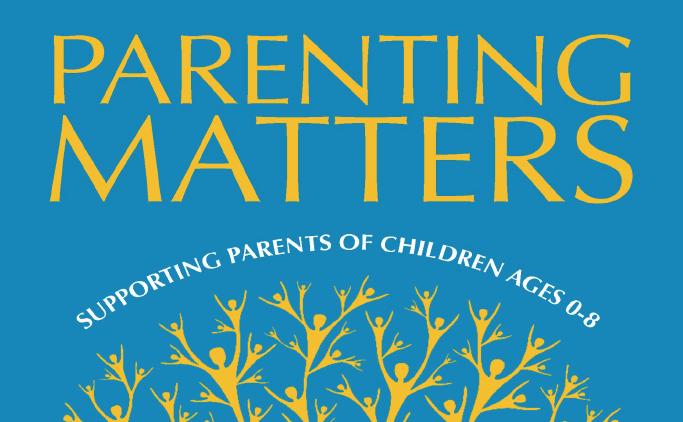New National Report Urges Making Parenting Support A Priority
Editor’s Note: I wish I could read “new” reports like this without a tinge of bitterness, but the truth is, we’ve known families were thrown to the wolves in America for decades. In fact, if you are an adult who decides to bring children into the world one of the first discoveries you make is how the words “parent, mother, father, children and family” are culturally relegated to a subclass of citizenry, meaning you, a formerly well-regarded, contributing citizen of society, are now unworthy of social regard and support. See the documentary, Mom Is A Dirty Word, for more on this well-known phenomenon, and read Meryn Callander’s book review of the 20 year old classic, The War Against Parents, for a quick insight into how families aren’t just “off the radar” for cultural and social support, but actively warred against in a country that is driven by a materialistic Consumer Culture. To this point, Darcia Narvaez, PhD, in her Mother’s Day piece this year, shows us how the value of “nurturing” is unwelcome in our Consumer Culture because it hails from a Gift Economy, whose values understand the nurturing needed to support lifelong human health – that begins pre-conception – cannot be measured, and is therefore, priceless. Narvaez says in her Kindred interview from this year that a “warning bell” needs to be sounding to any adult in America considering bringing children into this culture. Narvaez says the creation of conscious parenting programs is critical to prepare adults for the clinical risk for depression and parenting they face in a nation at the bottom of all developed countries for family support. Will a government created and distributed parenting educational program echo the values of a dying and unsustainable Consumer Culture or bring to families the neuro-developmental, biologically based values of a Gift Economy? One that recognizes wellness as priceless? Looks like we will get to find out Here you go, a new National Academies of Sciences study reveals the “startling” insight that the US needs to support parents and families….
See Kindred’s Parent and Professional Resource Center here for discovering the support that does exist through the tireless nonprofit work of pioneering organizations, activists and volunteers.
Making Parenting A National Piority In The U.S: Better Supports Needed For Parents
Ask any mom or dad and they will tell you: parenting is hard work. For those parents and caregivers who struggle with the nature or the demands of child rearing, sometimes help is hard to find.
A broad range of interventions and support programs have been assembled by researchers, social workers, government agencies and community-based organizations. Whether a parent in need receives the appropriate and effective program sometimes comes down to the luck of the draw, according to experts.
A new National Academies of Sciences, Engineering and Medicine report, co-authored by Lynch School of Education Associate Professor Eric Dearing, recommends health, human services, and education agencies develop a national framework to uniformly expand access to the best evidence-based strategies that support parents who need help.
“We are calling to make parenting a priority,” said Boston College developmental psychologist Eric Dearing, a report co-author on the National Academies-convened Committee on Supporting the Parents of Young Children. Dearing and his co-authors presented their findings today in Washington, D.C.

The 400-page report Parenting Matters focused on supporting parents of children ages zero to eight by examining the leading research on a range of programs, the work of practitioners in the field and the oversight of local, state and federal agencies and systems.
“Overwhelmingly, parents want their young children to thrive, yet it’s a really hard job and many parents are struggling to find the supports to help them do that job,” said Dearing, a member of the Lynch School of Education’s Department of Counseling, Developmental and Educational Psychology. “Right now there are too many families who have not been fortunate enough to be in a situation where they are getting the supports they need.”
The researchers, who began their work in early 2015, identified a core set of parenting knowledge, attitudes, and practices tied to positive parent-child interactions and outcomes for children from birth to age 8.
The report recommends ways for health, human services, and education agencies and systems to promote wide-scale adoption of evidence-based strategies that support America’s struggling parents, including specific populations, such as fathers, immigrant families, and parents of children with disabilities.
Ten specific recommendations spell out ways to create a unified, nationwide approach to supporting and sharing proven strategies with a range of institutions and organizations that work with men and women on parenting skills or other issues that require intervention.
“One of our major findings was that there are professionals working with parents, but their focus is not on parenting – nurses, pediatricians, social workers, teachers and child welfare services are all doing work with adults, many of whom are parents,” said Dearing. “There is a missed opportunity there to treat them in ways we can support these adults to help them as parents, which is, in essence, supporting their children.”
The report recommends more support and collaboration from leading federal agencies, including the Department of Health and Human Services, Department of Education, Centers for Disease Control, National Institutes of Health, Agency for Healthcare Research and Quality, and the Centers for Medicare & Medicaid Services.
“The primary goal is to offer some guidance for research, policy and practice concerned with the parents of young children,” said Dearing. “It is something of a blueprint for how we can work toward a national framework that would provide a more comprehensive approach to supporting parents of young children.”
Photo by Shutterstock/itmejust’s

